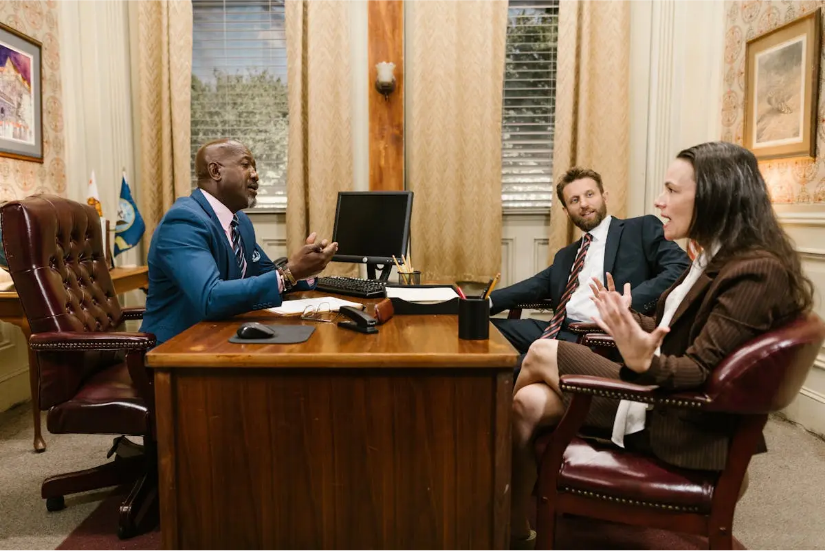Choosing the right appellate attorney can be a daunting task, especially when the stakes are high. The outcome of your case may depend on your ability to find someone who not only understands the intricacies of appeals, but also aligns with your needs. In this article, we will guide you through essential questions that can help you make an informed decision when hiring an appellate lawyer.
1. What is Your Experience with Appeals?
2. What Is Your Case Strategy for My Situation?
Understanding the lawyer's strategy for your specific case is essential. An effective appellate lawyer should be able to articulate a clear and concise plan tailored to your situation. This strategy should take into account the unique aspects of your case, including any previous court rulings, the issues at stake, and the desired outcomes. A well-defined strategy indicates that the lawyer has a thorough grasp of your case and is ready to advocate for your interests.
In addition, consider asking how they intend to address potential challenges that may arise during the appellate process. An adept lawyer should anticipate issues before they become problematic and have contingency plans in place. It’s also helpful to discuss how they approached similar cases in the past, as this can showcase their problem-solving skills and resourcefulness. Ultimately, you want a lawyer who is proactive and adaptable to changing circumstances.
Furthermore, the lawyer’s ability to make you feel comfortable with their proposed strategy is crucial. You should understand the plan and feel confident in its viability. If they can effectively explain their strategic thought process to you, that can significantly bolster your trust in their capabilities.
3. How Do You Charge for Your Services?
4. What is the Likely Timeline for My Appeal?
Understanding the likely timeline for your appeal is crucial, as appeals can often be lengthy and complex. A skilled appellate attorney should be able to give you an estimated timeframe for each phase of the appeal. While no attorney can guarantee exact timing, they should be able to outline a general schedule based on their experience with similar cases and the particular court where your appeal will be heard. Knowing the timeline will help you set realistic expectations and prepare for each step in the process.
Ask them about the typical stages, from filing the notice of appeal to submitting briefs, oral arguments, and waiting for the court’s decision. Each of these steps can take varying amounts of time, depending on the specifics of your case and court backlog. Knowing these stages and how long they might take will help you plan and feel more in control as your appeal progresses. Additionally, if there are potential delays due to factors such as court schedules, procedural issues, or opposing counsel, a knowledgeable attorney can discuss the possible delays with you upfront.
5. Who Will Be Working on My Case, and What Will Their Roles Be?
It’s important to know who will handle different aspects of your case and what role each person will play. While some attorneys personally manage all parts of an appeal, others work with a team of legal professionals, including associates, paralegals, and administrative staff. Understanding who will be involved and how the workload will be distributed can give you a better idea of the attention your case will receive.
Ask if the lead attorney will be primarily responsible for writing briefs, conducting research, and presenting oral arguments, or if these tasks will be delegated. Knowing who is on your case team allows you to understand their respective strengths and qualifications. It’s also helpful to ask if the attorney has specific team members with particular experience in the type of appeal you’re pursuing, as this can add value to your representation. A clear view of each team member’s role will provide transparency and build confidence in your choice.
6. How Do You Communicate with Clients Throughout the Appeal Process?
Conclusion
Hiring the right appellate attorney is essential to navigating the complex and often high-stakes world of appeals. By carefully considering an attorney’s experience, case strategy, and fee structure, you can ensure that you are well-represented by a skilled professional who understands both the legal and personal stakes involved. Each of these factors—experience, strategy, and cost—contributes to the overall quality and effectiveness of representation you can expect. With thorough research and clear communication, you can make an informed choice that aligns with your needs and increases the likelihood of a favorable outcome in your appeal.
Appellate Representation for Californians
At McLellan Law Group, LLP, our team is dedicated to helping California residents navigate the complexities of appeals. If you need guidance on a pending or potential appeal, our experienced attorneys can provide tailored advice to protect your interests.
Request a free consultation today to discuss your appeal.
Appeal FAQs
An appeal is a legal process where a higher court reviews a lower court's decision. It is pursued when one party believes there was an error in the trial's procedure or the judge's interpretation of the law. Successful appeals can result in reversing or modifying the lower court's decision.
How long do I have to file an appeal?
In California, the timeframe to file an appeal varies depending on the type of case. Generally, for civil cases, you have 60 days from the date of the judgment or order to file a notice of appeal. For criminal cases, the deadline is typically 30 days. Missing these deadlines can result in losing the right to appeal. Always consult the specific rules or seek legal advice to ensure compliance with the correct filing period.
How long does an appeal typically take?
The duration of an appeal process can vary, but in California, it typically takes between 12 to 18 months. This timeframe includes filing briefs, oral arguments, and waiting for the court's decision. Complex cases or those with extensive records may take longer. It's important to note that each step of the appeal process has specific deadlines that must be met. The overall length can also be influenced by the caseload of the appellate court.
Does the other side pay my attorneys' fees or costs if I win the appeal?
In California, if a litigant wins an appeal, they may be entitled to recover attorneys' fees and costs. The prevailing party can file a motion to claim these expenses from the losing party.













